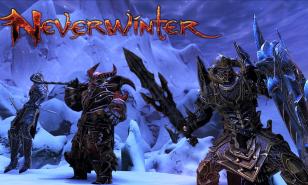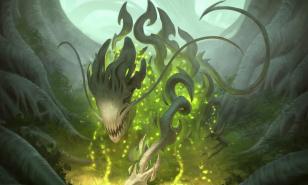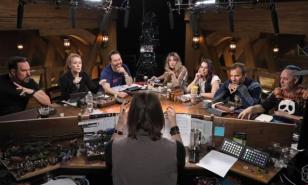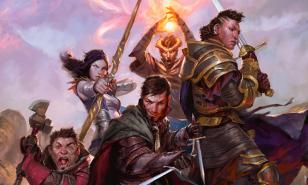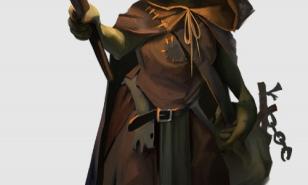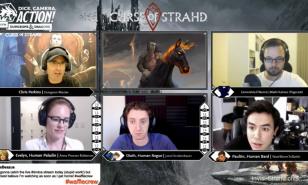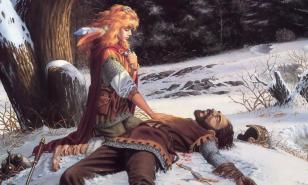D&D Beginner Guide - Top 50 Tips & Tricks You Must Know
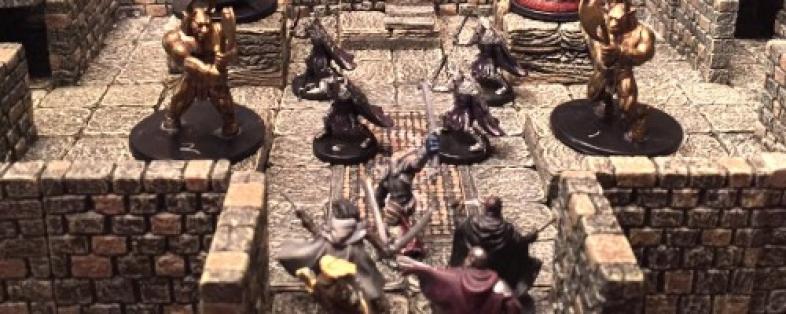
Dungeons and Dragons is more than just a game, it's an interactive story between friends limited only by your imagination and the Dungeon Master's rulings.
Anyone approaching Dungeons and Dragons, or D&D as it’s known, for the first time can understandably feel overwhelmed with the amount of rules presented to you. Don’t panic! D&D is best learned in practice. This article will serve as your tabletop towel as we explore the top 50 tips and tricks for beginners of Dungeons and Dragons 5th edition.
Getting Started
Dungeons and Dragons is about teamwork to overcome obstacles and it’s important to have fun. The Dungeon Master (or DM), the person who runs the game, is not your enemy. The fun of D&D is creating a living story and while the DM is all of your enemies, they are also all of your allies as well. The best of games stem from a mutual trust between the player and the DM.
I have been playing Dungeons and Dragons (among other assorted systems) for over twenty years. The stories I have from these games and the bonds I have created are those I will treasure with me for the rest of my days. It can take some effort to learn, but I can promise it will be well worth the effort. As a final note before we get started, a bad member of your group can make or break an experience. If you don’t have luck with your first group, give a different one a try!
Abilities and Skills
When first looking at a character sheet, things can be a bit overwhelming. Let me break down some of what you are looking at.
1. There are six ability scores that can determine how good (or bad) your character is at certain skills before training and experience.
-
A character’s strength determines your characters’ athletic training and how hard you can hit with melee attacks. Strength boosts your athletics skill and affects your damage and accuracy for some weapons.
-
Nimble characters or thieves living in the shadows can boast of a high dexterity score. Dexterity affects the skills acrobatics, sleight of hand, and stealth and is the most important ability for a Rogue or ranged combatants.
-
Constitution helps keep you alive and can help protect you from disease. A Barbarian would be wise to invest in having a good constitution to help absorb the blows.
-
Having good intelligence is about being able to retain the information and use your reasoning skills. The aspiring Wizard would want to have a high intelligence to assist them in their spellcasting. Skills like arcana, history, investigation, nature, and religion are affected when your intelligence grows.
-
Often confused with intelligence, wisdom is how in touch with your surroundings or how perceptive your character is. This also relates to your ability to sense others' motives and calm animals. Animal handling, insight, perception, and survival are all skills related to this ability with Clerics and Druids finding it useful for their spellcasting.
-
Charisma is often attributed to your characters’ physical attractiveness but this is the tip of the iceberg. A charismatic character can use their tongue in the stead of a blade and turn the tide for, or against you. Bards, Paladins, Sorcerers, and Warlocks find themselves enjoying the benefits of having this ability score high. The skills charisma effects are deception, intimidation, performance, and persuasion.
2. 10 is the average for ability scores. This means someone with a 10 in strength is not bad nor terribly good at athletics but could probably pull their own weight.
3. Each ability score has a “save” attached to it. These saves are used to determine how well your character can withstand attacks or conditions. For example, a dexterity save would be used to see if a character could dodge a falling tree branch.
4. The difference between perception and investigation can be a bit confusing. I like to remember the difference by perception is what you can sense; what you can perceive. While investigation is actively searching for clues or the location of a hidden object. I think a hidden power of the investigation skill is also the ability to notice what isn’t there as well as what is.
5. Your ability scores determine your ability score modifier which is one of the numbers that you will add to your dice roll. There is a chart you can use in the Player’s Handbook (or PHB) on page 13. To help simplify this, you just start at 10 with zero. Every two you go up you add a +1. So a 12 in strength would give you a +1 modifier. As you go lower by two, the modifier turns negative granting someone with an intelligence of 8 a -1 modifier.
6. You are not limited by skills to what actions you can perform. If you wish to do something that isn’t related to a skill, the DM will ask you to roll a check for the appropriate ability score. For example, you want to appraise the value of a gem you found, this would be an intelligence check as there is no skill relating to this.
7. You’ll notice on your character sheet something about a “Passive Perception.” In fact, any skill can be considered passive by starting with 10 and adding the respective modifiers. The point of a passive check, as it’s called, is to reduce excessive dice rolling. A DM can choose to ask a player to give them a passive check to determine success and failure for repeated or persistent tasks such as stealth.
Actions and Activities
Once you create your character and things get moving, it can be difficult to pinpoint some of the nuances of some of the rules as written or even some of the options you have available to you. There are three types of activities you will be participating in; Social Encounters, Exploration, and Combat.
-
A Social Encounter is any action requiring social interaction, including but not limited to, attempting to persuade or intimidate someone to give you information.
-
Exploration is where the players get to interact with the environment with actions such as jumping over a river or climbing a tree. Basically, anything not talking or combat is considered exploration.
-
Combat is what happens when the players encounter (or create) hostile creatures and must use their skills to defeat them in battle. This happens in ordered turns determined by an initiative roll. Once everyone has had an opportunity to act, that would be the end of that round and the beginning of the next where everyone can act again within reason.
Disclaimer: Your Dungeon Master always has the last say in regards to rules and how they are enforced in your game.
8. In order to save a character from death, it is only required to bring them to 1 hit point, or health. You can also use a medicine check or a medicine kit to stabilize the character to prevent them from bleeding out.
9. A player can assist another player on a roll, granting them an advantage on that check. However, you cannot assist another player unless they are using a skill you are proficient with. For example, if you are not proficient with thieves tools, you cannot assist the other players attempt to use them to pick a lock.
10. There is more than moving and attacking that you can do in combat. In each round, each player is awarded 1 move action equal to your base movement speed, 1 action (attack or cast a spell), 1 bonus action (skill/spell restricted), 1 interaction (drawing your weapon), and 1 reaction (casting a shield spell when attacked). Your use of each action will refresh at the beginning of the next round. Keep in mind, not everyone has actions that grant bonus actions.
11. All actions you take during a turn in Dungeons and Dragons combat is translated to 6 seconds in-game time, but combat can easily be the longest part of the game. Try to keep all actions and speech to what could reasonably happen in that time frame. Do your fellow players and your DM a favor and try to have your next action planned before they get to your turn in the initiative (combat action order) so combat can move smoothly.
12. Don’t forget that you can delay or even prepare your action in combat! For example, you are playing a tanky warrior and you want to stand guard for your teammates. You can declare that you would like to prepare an attack action for when a goblin gets within melee range of you and suspend, or Delay your action PHB pg. 193) your turn until that happens. This can be risky as a prepared action has a chance to not trigger, depending on what happens during the round.
13. Temporary hit points don’t stack. There are abilities that allow you to gain hit points (your characters life essence/health) which are not part of your normal hit point pool. When taking damage, you will subtract from your temporary hit points first. However, if you gained 10 hit points last round and took 8 points of damage, and gained 8 temporary hit points, it does not get added to the 2 remaining. You must choose between having either 2 or 8 temporary hit points.
14. It is not possible to cast two spells in the same turn. A cantrip is a lower potency spell that you do not have to expend any magical energy to cast. A spell is of greater potency requires magical energy which is replenished after 8 hours (or a long rest) with some exceptions. Looking at you, Warlock. However, it is possible to cast a spell and a cantrip in the same turn with the right abilities.

If you are looking to perform great feats of strength or bash now ask questions later, the barbarian is the class for you. While raging, they are extremely resistant without having to wear armor or sacrifice their damage.
15. Rage is the bread and butter for the barbarian, however, there are some key things to keep in mind while using it. You can’t wear any heavy armor, ever or rage will simply not work. The damage bonus you get only applies to melee weapon attacks using strength and not with any finesse or dexterity based attacks. And you cannot cast spells nor concentrate on maintaining any spells.
16. Not all barbarians use great weapons (two-handed weapons), however, if you do decide to grab that great axe at level 1 and your DM allows the feats optional rule, take a look at getting the feat Great Weapon Master as soon as possible.
17. At level three, you gain access to choose a subclass. One of the subclasses, the Path of the Berserker is on the extreme end on the Risk vs Reward scale with the ability Frenzy. It’s important to note levels of exhaustion may not seem like much, but it will sneak up on you if you aren’t careful. Upon reaching the 6th level of exhaustion, your character dies.

Magic is everywhere in the worlds of Dungeons and Dragons. It has even been woven into the songs of the people. Bard has seen some bumps along the road in the past, however, in 5th edition, the bard now has found a solid place in the hearts of players with their Vicious Mockery.
18. Bardic inspiration is amazing! Your bardic inspiration dice can make all the difference even though it may not seem like much. Every few levels you get a little more to play with and there is no reason to not divvy out the love after level 5 with Font of Inspiration to give you more.
19. There are a lot of different flavors of bard from the varying colleges to different instruments to choose from. Ask your DM if they will allow other types of entertainers such as a dancer or acrobat to replace your instrument choice.
20. Bards are the jack of all trades for D&D 5th edition as they get access to all available skills. With that in mind, a Bards spells and bardic inspiration dice pool grow with their charisma so it is recommended to select more charisma based skills.

Not just the healers of D&D, the cleric is actually the most versatile class. From War clerics in the front lines to a Tempest cleric punishing the wicked with lightning bolts, there are many flavors of the divine you can choose from. Clerics also have the easiest style of magic to learn and would be my recommendation for a beginner looking to try a magic class.
21. The best in-combat heal for level 1 is Healing Word. It’s a bonus action for you to cast this ranged healing spell. It may not seem like much, but being able to heal your party from a distance can stop one from bleeding out.
22. If your DM is allowing the feat optional rule, I highly recommend getting the War Caster feat as soon as possible. This will allow you to feel more free to act as you need for your party’s survival.
23. Feel uncomfortable with the idea of being religious? Discuss with your DM about the idea of being a cleric of an ideal instead. For example, you could be a Cleric of life by revering life on such a level you are blessed to carry it’s light with you which translates into the domain spells and benefits.

Shapeshifters and the devout of nature's call, Druids are my personal favorite class. With the flexibility of casting spells and being able to change into creatures, they are some of the toughest to take down on the field. There are some similar themes shared with Cleric as they both boast healing spells, however, they are distinctly different with Druid healing spells working to preserve the balance of nature.
24. When you shift into a creature, you gain their hit points as temporary hit points. Because of this, when you take damage, the health from your shape will be subtracted first. When you hit 0 in your current form, you will be forced to revert to your humanoid form. However, with you revert back, you will still be at the same health as before you changed, letting druids use their wild shape to absorb large amounts of damage.
25. When changing into a beast, the druid takes on the physical characteristics of the beast which are the hit points, hit dice, armor class, saving throws, skills (if higher), senses and their attacks. The druid then keeps their own personality, saving throws, skills, all other class features, and racial traits. While a shifted druid can’t cast spells, they can concentrate on a spell while shifted. Keep a record of the forms you like using for quick reference.
26. You cannot fly or swim with certain creatures until you reach a certain level of druid. Though nothing says you can’t ask your DM if it is possible to shift into one of the creatures beforehand, just unable to swim or fly. This resulted in a druid in hawk form of mine ending upside-down when attempting to jump off a tree onto the ranger’s arm.

Over the decades, the fighter has grown from just a front line brute to a walking weapons master. Fighters are the warmasters of D&D, wielding their knowledge of combat and discipline to whichever tune they carry.
27. Action surge is the keystone of a fighter. Not only gaining extra attacks but once per short rest (1 hour), you can take an additional action. Don’t be shy in using this nor for asking for that needed rest afterward.
28. Fighters gain access to two more ability score improvements than other classes, giving you more options to be able to truly make the weapon master of your dreams. Mixing this further with variant human as a race and you’ll have more than a few options at your disposal.
29. It’s generally important to plan ahead with builds, however, with fighter and the subclass Eldritch Knight, in particular, you will want to ensure you have some intelligence to support the spell casting abilities you will gain at level 3.

Wax on. Wax off. With iconic movies such as Karate Kid and Kung Fu Panda, it’s hard not to imagine the unarmed masters of one-self jumping around in your mind’s eye.
30. It’s important to keep in mind how your Martial Arts works. You are only granted the bonus unarmed strike if you attack using an unarmed attack or monk weapon. It also does not work if you are wearing armor.
31. Don’t forget your Ki! Not only can you make two unarmed attacks with a bonus action with Flurry of Blows, but with Patient Defense, you can use a dodge action on your bonus action or Step of the Wind where your jump distance is doubled for the turn.
32. Meditate. In order to regain your Ki points, you will need to spend at least 30 minutes of your rest meditating. Don’t rely on your DM to ask if you are meditating. If you do not state it to the DM, it did not happen.

Champions of their cause, a Paladin doesn’t have to be a paragon, there are plenty of flavors os renegade for you to choose from. Beholden to their oaths, these divine knights are a bridge between the fighters and clerics of D&D.
33. While Paladins do get access to spells, most of them are not very good. Focus on taking utility spells and saving your spell slots for smites.
34. Speaking of smites, you can choose to use smite, or holy smackdown, on whatever you are fighting after you know you have hit your target but before you have rolled your damage for the attack. That being said, save your smites for big bad guys or when you have a critical for a holy explosion of damage.
35. You can lose access to being a Paladin at your DMs discretion if you continuously break your oaths unrepentantly. Officially, there is no hard limit to how long this can continue and is ultimately up to the DM.

Masters of their chosen environment and explorers of the wilds, the Rangers are one of the hybrid classes you can choose from. Aragorn is the quintessential example of a Ranger.
36. It’s important to remember that Rangers are a hybrid class. Their strength is found with you use their martial skills and spells together like with the Hunter’s Mark spell. Be sure you are using your support spells!
37. Be sure you are coordinating with your DM on which environments will be available in the campaign. Ultimately, it’s up to the DM on what information they release to you.
38. If you aren’t happy with the choices that you see in the Player’s Handbook, take a look and talk to your DM about the revised edition of Ranger from Unearthed Arcana.

Not just limited to thieves, the Rogue is the “skill monkey” of the party helping to provide skilled support for their party in whichever flavor you wish or need.
39. Sneak attack is a great skill with more power than it appears. You can deal an extra D6 of damage to on creature you have hit with an attack if you have an advantage on the roll of if another enemy of the target if within 5 ft of it. It must be a finesse or ranged weapon. It’s only 1D6 to start, but at level 19, it’s 10D6 added to your attack per turn!
40. Take advantage of your bonus actions. Once you hit level 2 and gain access to Cunning Action, you can use this to enter combat, attack, and disengage from combat to be out of range of retaliation.
41. Your expertise bonus can only be applied once. While making your choices for leveling, it’s important to note that you gain an expertise bonus more than once. You cannot stack these bonuses to skills already boosted by expertise previously

Maybe she’s born with it, maybe it’s just infinite cosmic power. A true Sorcerer just creates magic at a whim with no study, much to the chagrin of any Wizard.
42. Meta-magic feats are love and are part of what separates Sorcerers from their other arcane counterparts. Carefully consider which would benefit your playstyle most with Quicken Spell and Twin Spell being favorites.
43. Choosing the draconic bloodline gives you a great armor class boost, which is fantastic since you don’t get any armor proficiency. With a 13 + your dexterity modifier for your new armor class or AC, you have a free mage armor.
44. Another potent combination is Silent Spell and the spell Detect Thoughts will allow you the ability to read minds without people knowing you are doing it.

If the idea of selling your soul for fun and profit with a serving of Eldritch Blast, Warlock may be where you are looking to go.
45. Eldritch Evocations make the Warlock one of the most customizable classes available. From being able to make a spell sniper to a melee charisma based fighter, the limits are really your imagination and their spell slots.
46. Don’t be afraid to work with your DM to bring your patron into the world as an active and moving part of its mechanisms. It should be more than what you chose on your character sheet.
47. Due to pact magic, your magical energies can return to you during a short rest allowing you to need less time to recover after a big or prolonged fight.

Wizards are the would-be masters of the arcane, spending hours upon hours reading about magical theory and practice. No other class comes close to the Wizard when it comes to pure magical potential.
48. The Wizard has a fantastic list of utility spells available to be used to solve your problems because not everything has to be resolved with explosions.
49. It is possible to copy every Wizard spell into a single spellbook. When you come across scrolls or even other Wizards spellbooks you can go through a process to copy them into yours. It’s also not a bad idea to make a copy of your spellbook and store it somewhere safe, as you can lose it.
50. Preparation is the key to domination. By extension, the Wizard can be the hardest class to feel rewarded for your efforts as the wrong combination of spells can make you feel useless. Learn from the experience so you will know better what to prepare next time.
Bonus Tip: While it is a popular rule, it is not part of the game rules that rolling a 20 (the highest possible roll on a D20 and called a “natural 20” or “rolling a critical”) gives you an automatic success or impossible outcomes in your favor. Officially, criticals are only used in combat attack rolls.
Don't’ be shy, I’d love to hear some of your stories and any other tips and tricks you can think of!
Stay awhile and listen! If you enjoyed what you saw here, take a look at these articles to sate your appetite for more:
Image Gallery
- Log in or register to post comments
 Home
Home PC Game Trailers
PC Game Trailers News
News Menu
Menu

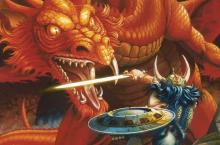
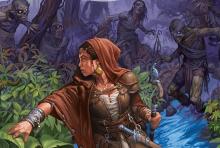
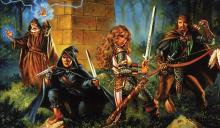


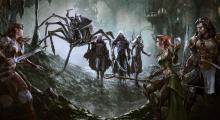
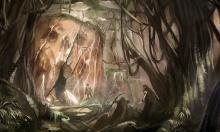

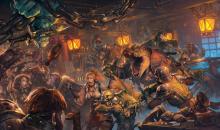
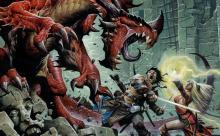

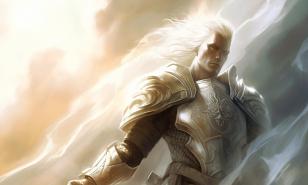
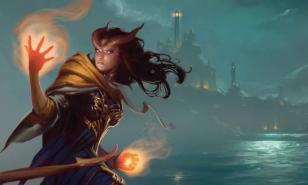
![[Top 25] D&D Best Weapons That Are Legendary D&D Best Weapons That Are Legendary](https://www.gamersdecide.com/sites/default/files/styles/308x185-scale-crop--more-top-stories/public/top_25_d_d_best_weapons_that_are_legendary.jpg)
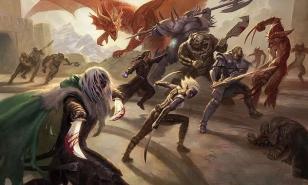
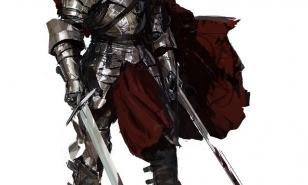

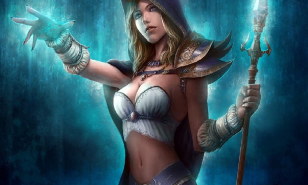
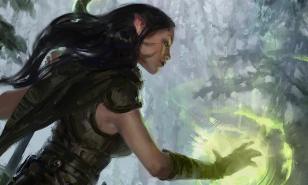
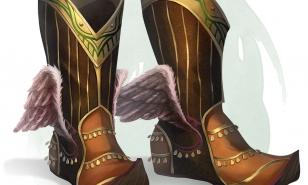
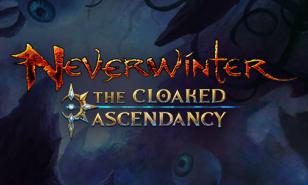
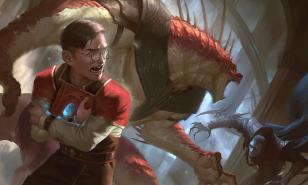
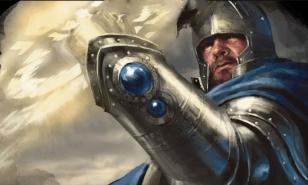
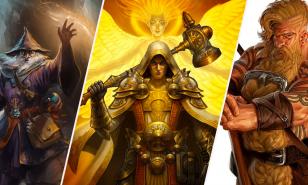
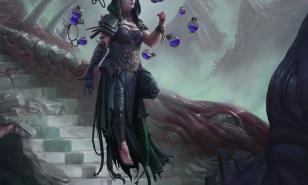
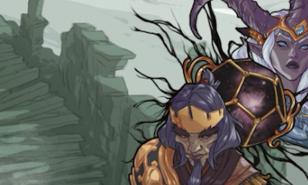
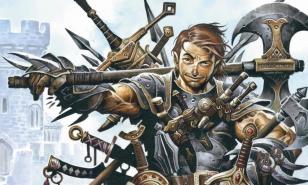
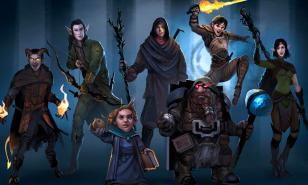
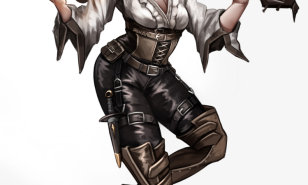
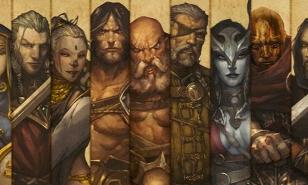
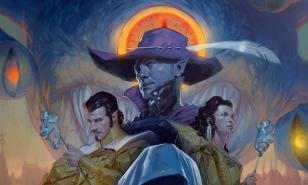
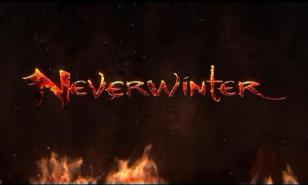

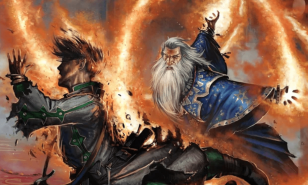
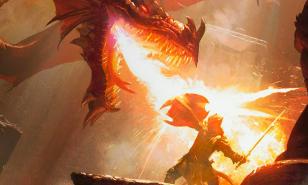
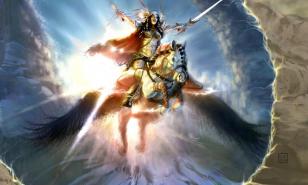
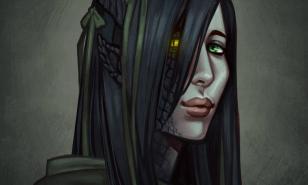
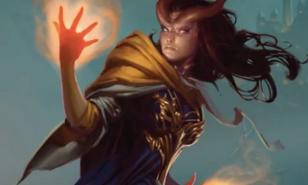
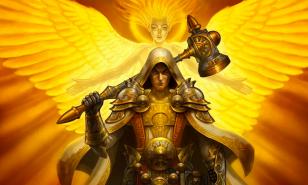
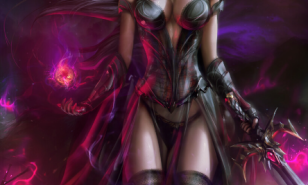
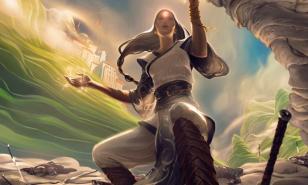
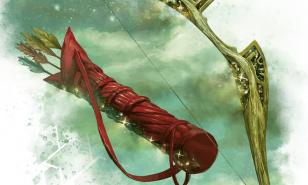
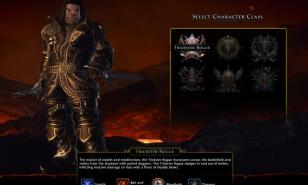
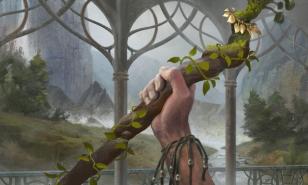


![[Top 25] Best D&D Spells Every Party Should Have [Top 25] Best D&D Spells Every Party Should Have](https://www.gamersdecide.com/sites/default/files/styles/308x185-scale-crop--more-top-stories/public/top_25_best_d_d_spells_every_party_should_have_cover.jpg)
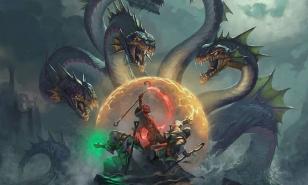

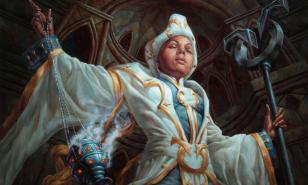
![[Top 11] D&D Best Paladin Multiclass That Are Fun Strong Stern Paladin (Image credit: 中秋快乐~)](https://www.gamersdecide.com/sites/default/files/styles/308x185-scale-crop--more-top-stories/public/image_2023-02-04_114652751.png)

![[Top 5] D&D Best Monk Builds That Are Excellent](https://www.gamersdecide.com/sites/default/files/styles/308x185-scale-crop--more-top-stories/public/screen_shot_2022-02-16_at_3.13.03_am.jpg)
